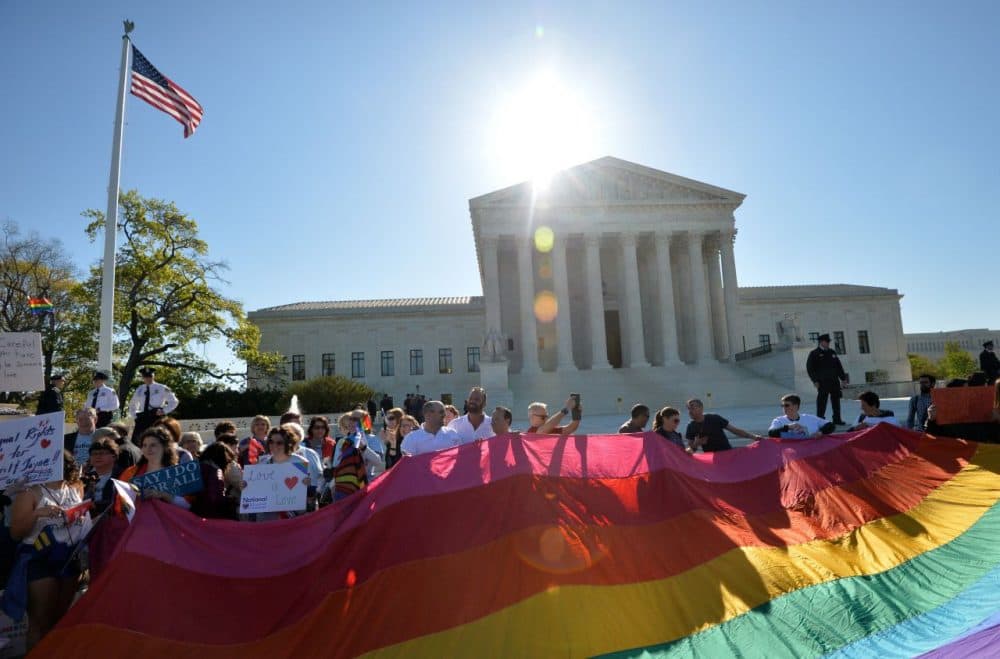Advertisement
Obergefell V. Hodges May Go Down In History As Landmark Civil Rights Case
Resume
The Supreme Court today heard arguments in Obergefell v. Hodges, a case which is likely to go down in the history books alongside other landmark civil rights cases.
This one centers on two questions: first, whether there is a constitutional right to gay marriage, and second, if not, whether states that have bans on gay marriage have to recognize gay marriages performed in other states where it's legal.
Here & Now's Jeremy Hobson talks with Harvard Law School professor Michael Klarman about the significance of Obergefell v. Hodges and where it fits in with other landmark Supreme Court cases, such as Brown v. Board of Education and Roe v. Wade.
Guest
- Michael Klarman, professor at Harvard Law School and author of "From the Closet to the Altar: Courts, Backlash, and the Struggle for Same-Sex Marriage."
This segment aired on April 28, 2015.